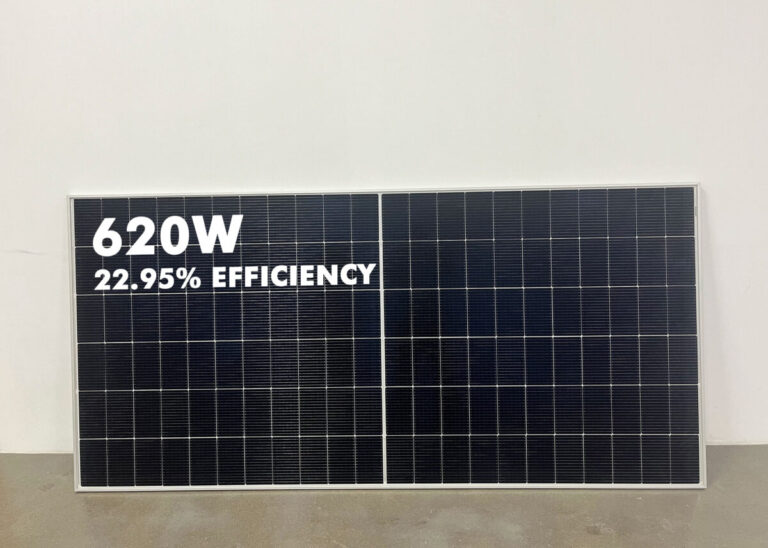Leapton says its new panels have a temperature coefficient of -0.30% per C and an efficiency of up to 23.14%. They come with a 30-year performance guarantee for 87.4% of the initial yield.
Japan-based Leapton Energy Co., Ltd. has released a new double-glazed solar panel based on n-type tunnel oxide passivated contact (TOPcon) technology and rectangular wafers.
The LP182*210M66NB modules feature 182mm x 210mm n-type TOPCon cells and an aluminum alloy frame.
“The modules are based on 210R cells, which offer the advantage of low open-circuit voltage, resulting in higher string power,” a company spokesperson said. pv magazine. “In a typical 1500 V ground station system design, each string can connect two additional modules, increasing string power by 13%.”
Leapton offers six versions of the panels, with power ratings ranging from 600 W to 625 W. Efficiency values range from 22.21% to 23.14%. The no-load voltage is between 44.54 V and 49.75 and the short-circuit current is between 15.78 A and 16.00 A. The maximum system voltage is 1,500 V.
The panels measure 2,382 mm x 1,134 mm x 30 mm and weigh 33.5 kg. They also feature an IP68 housing, 2.0mm anti-reflective glass on the front and 2.0mm heat-resistant glass on the back. They have a temperature coefficient of -0.30% per degree Celsius and an operating temperature ranging from -40 C to 85 C.
The new products come with a 30-year linear performance warranty and a 25-year product warranty. The first year degradation is reported to be 1.0%. The final power over 30 years is guaranteed to be no less than 87.4% of the nominal output power.
“Using our 210R-66 mid-size modules reduces the number of strings, total length and number of tracking brackets by 13%, and reduces the number of modules, DC cables and MC4 connectors by 5%-8%.” the spokesperson added.
Leapton Energy had a production capacity of 3.5 GW in China at the end of 2023.
This content is copyrighted and may not be reused. If you would like to collaborate with us and reuse some of our content, please contact: editors@pv-magazine.com.


